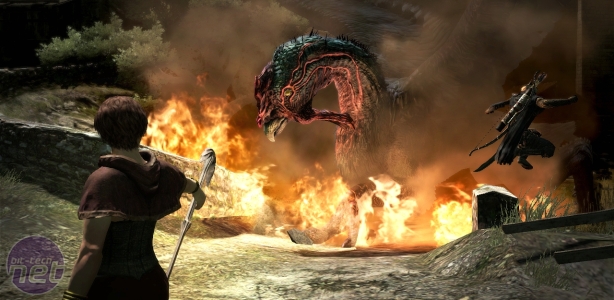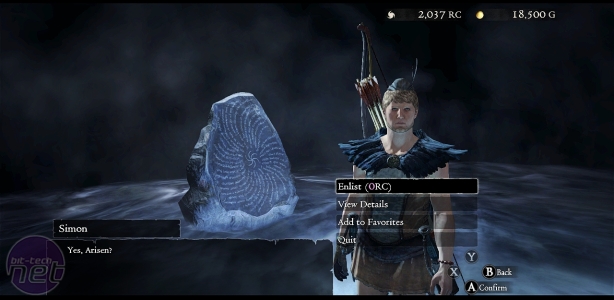
Dragon's Dogma Review
Publisher: CapcomPlatform: PS3 (tested), Xbox 360
UK Price (as reviewed): £34.99 Incl. VAT
US Price (as reviewed): $55.99 Excl. Tax
When it comes to medieval style RPGs, Dragon's Dogma appears to tick most of the boxes; massive dragon - check, open world - check, character classes - check. At times Dragon’s Dogma plays like a checklist of modern RPG elements. However, despite the first few hours being a little uninspiring, if you can look past the generic setting, things thankfully begin to get interesting.
Dragon’s Dogma starts with a big, talking dragon attacking your village before stealing your heart and flying off into the distance. Bad times. You soon learn you’re character is Arisen, a chosen one who must defeat the dragon, getting your heart back in the process. Good times. That’s about all you get in terms of story for the bulk of the game, but that’s not necessarily a bad thing.
Signposting is also pretty much non-existent: Dragon’s Dogma is a game about exploring its world in your own way, at your own pace. On the surface, the leafy fantasy setting and expansive open world appears similar to Skyrim, but it’s Dark Souls that Dragon’s Dogma owes the most to in terms of tone and gameplay.
The first time you head out of town and explore properly you’ll be unprepared for the harshness of this unforgiving world. Monsters can kill in just a few strikes, health doesn’t fully recover until you rest and when darkness falls not only is it pitch black, but even nastier monsters come out to play.
Early on, you acquire party members called Pawns, one of which is your companion for the duration of the game. Your main Pawn, like you, can be customised in terms of appearance and abilities and is intended to compliment your playing style, while the other two members of your party are disposable and supposed to be switched regularly to try out different group dynamics and tactics.
Dragon’s Dogma explains the existence of Pawns in a suitably hokey manner, but all you need to know is they are yours to experiment with however you like. Fancy having a party of mages? Want to know what special skills assassin have? All you need do is visit a Rift Stone (the otherworldly hub that Pawns call home) and take your pick of the willing recruits on offer.
RPGs normally force you to make big decisions early in the game before you really know what lies in wait, and if you don’t like your chosen path there’s not a lot you can do apart from revert to an earlier save. In Dragon’s Dogma, the constant shift of party members combined with being able to pay to switch classes yourself creates a sense of freedom and fluidity.
Pawns love to have a chinwag and as you explore towns, fight monsters and encounter NPCs they’ll offer advice. This ranges from banal observations such as, ‘you would do best to avoid the water, lest you get wet’ (made more ridiculous by the fact the Pawn dispensing that particular nugget of wisdom will more often than not be waist deep themselves) to useful tactics for killing monsters, or historical context for areas and buildings.
The major innovation that Dragon’s Dogma introduces is that other players can use your main Pawn at anytime as long as you both have an internet connection, in a quasi MMO manner that, again, has Dark Souls to thank for inspiration. You don’t have to give permission or be online at the time for this to happen. Rather, every time you sleep at an inn your main Pawn’s stats are uploaded to the server and if another player wants to, they can recruit them.

MSI MPG Velox 100R Chassis Review
October 14 2021 | 15:04











Want to comment? Please log in.